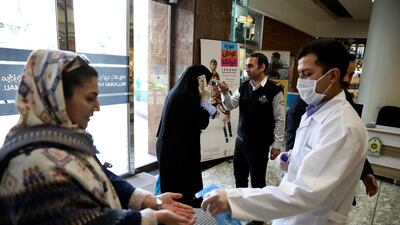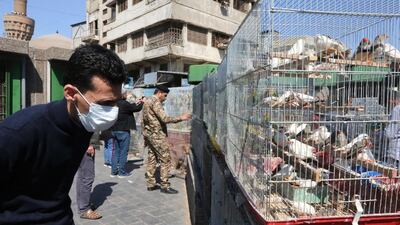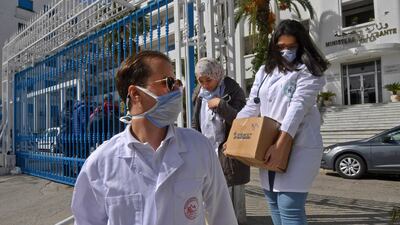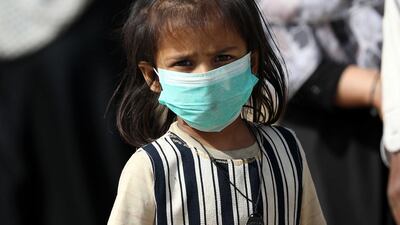More than 2,300 people in Oman have been placed under quarantine to curb the spread of coronavirus, with the number of confirmed cases rising to 12.
Oman's Ministry of Health said the number of people contracting the virus had risen because of people returning from Iran. Earlier, at a press conference, authorities had explained the majority of those placed under quarantine had been asked to stay at home.
"The registration of six new cases of coronavirus has been reported [to be] related to travel to the Islamic republic of Iran; four of them are of Iranian nationality and two are citizens, all of whom are subject to quarantine," the Ministry of Health said.
At the same time, the ministry said the level of threat posed by the virus, known as Covid-19, had increased, reaching what it referred to as "Stage 3".
At this point, authorities said, the number of infected people was expected to increase.
The sultanate reported its first two cases of Covid-19 at the end of February. Both were Omani women who had travelled to Iran.
Oman's Minister of Health Dr Ahmed Al Saidi said on Tuesday that most of the quarantined people had been asked to stay at home.
“The situation is so far under control and we are taking every measure to contain the coronavirus. All hospitals are under alert and doctors are well prepared for the situation,” Dr Al Saidi said.
He said he was in contact with the country's minister of education to decide whether schools should be closed for a short period of time.
"But no decision has yet been made about schools," Dr Al Saidi said.
Doctors have said the biggest challenge facing Oman is ensuring infected people stay indoors.
"Over 2,000 are quarantined by the government but we know most of them do not take it seriously. They don't stay at home. They feel alright but they don't know the incubation period can last up to 14 days before symptoms appear," Dr Joseph Patnam, a medical practitioner at Al Wasl Medical Clinic in Bawshar, told The National.
"There is no way the government can enforce the home quarantine and this is the reason why there is a possibility of the number of infected people might rise in the next week or so."
Other doctors called on the Ministry of Health to conduct workshops to better prepare medical staff.
“It would help a lot if the health ministry starts a series of workshops countrywide to prepare medical staff such as nurses and medical orderlies on how to cope with the pressure,” Dr Sushil Patel, a general practitioner at the NMC Medical Centre in Al Seeb, said.
"Most people seem to have common cold or chest pains but we cannot take that for granted."














